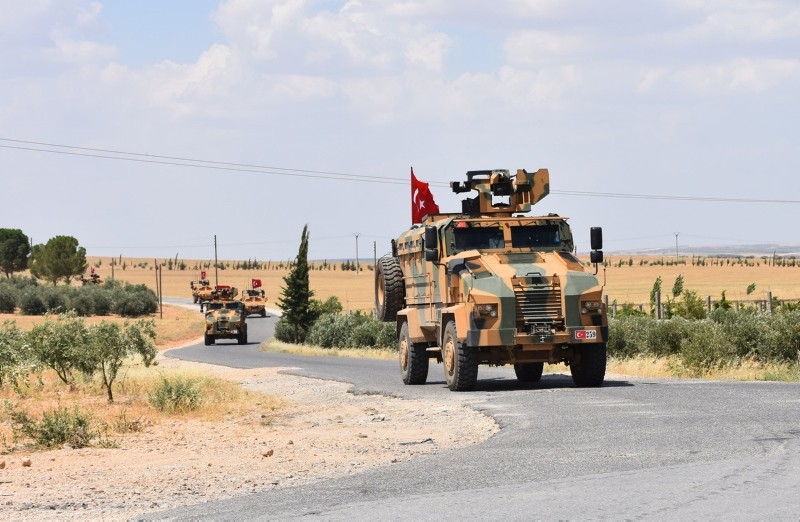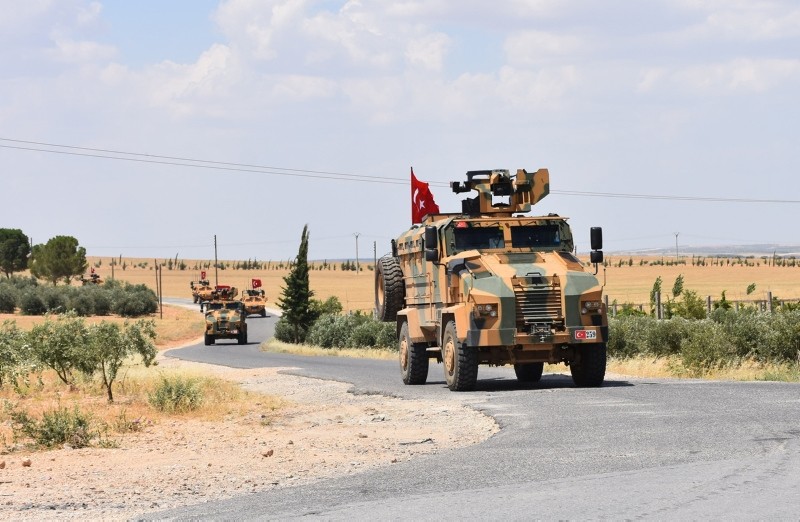Address
304 North Cardinal St.
Dorchester Center, MA 02124
Work Hours
Monday to Friday: 7AM - 7PM
Weekend: 10AM - 5PM
Address
304 North Cardinal St.
Dorchester Center, MA 02124
Work Hours
Monday to Friday: 7AM - 7PM
Weekend: 10AM - 5PM


Taking advantage of the international situation, Turkey is planning an upcoming military operation in Syria. President Recep Tayyip Erdoğan has explicitly stated on June 1 that Manbij and Tell Rifaat would be targets for Turkish forces entering Ankara’s southern neighbour, in what would be the fourth time since the start of the civil war (2016, 2018, 2019). However, most of the details have not been disclosed, including the size of troops involved, the overall strategy, and, more importantly, the timing of the whole operation.
What is certain is that the overall objective is to push Kurdish forces belonging to the Syrian Democratic Forces (SDF), an umbrella organisation of local militias, and its People’s Defense Units (YPG) away from the Turkish border, thus expanding the territories under the control of Ankara and its regional proxies, such as the militias belonging to the Syrian National Army (formerly Free Syrian Army). Turkey has recently (April 18) launched the new operation Claw-Lock in northern Iraq against the positions of the PKK (Kurdistan Workers’ Party), which Turkey, the European Union and the United States list as a terrorist organisation. Ankara considers Kurdish forces in Syria to be closely connected to the PKK, and as such make no distinctions between the two, treating both as hostile terrorist entities. The SDF/YPG are indeed linked to the PKK, interchanging weapons and fighters, but the two organisations are independent from each other in their area and scope of operations. The PKK has been waging a decades-long war against Ankara from both Turkey and Iraq, while its Syrian counterpart focuses on Syria and its civil war despite being close to the Turkish border.
The lack of distinction between the two and the need to prevent a Kurdish-held belt on its southern border have been the main consideration that pushed Ankara to enter the Syrian quagmire back in 2016. Now it is willing to follow up its gains, taking advantage of the fact that the international community and the main powers involved in Syria are preoccupied with the war in Ukraine. Turkey will try to gain a very favourable outcome by striking a bargain with both the US, the main sponsor of the Syrian Kurds, and Russia, present with troops on the ground on the side of the al-Assad regime in Damascus.
The war in Ukraine has turned Syria into a secondary scenario for both superpowers, and Turkey will certainly intend to exploit it to its advantage. Ankara has responded negatively to Swedish and Finnish NATO bids on the grounds that they provide a safe haven for Kurdish terrorists. While negotiations between Ankara and the two Nordic countries are taking place, the real target of this manoeuvre is Washington, from which Ankara expects an assent to its operation in Syria in exchange for Turkey’s acceptance of Sweden and Finland as new NATO members.
President Erdoğan was also likely waiting for Russian Foreign Minister Sergey Lavrov’s visit to Turkey on June 7 before greenlighting the new operation. The main item on the list are Russo-Turkish talks of unblocking several tons of Ukrainian wheat currently waiting in Odessa due to the ongoing hostilities. Turkey has offered to demine the port of the southern Ukrainian city and then escort the ships carrying the cereal through the Black Sea and the Turkish Straits, to deliver the precious cargo to countries that have long awaited the much-needed grains.
Erdoğan has also spoken to his Russian counterpart Vladimir Putin on May 30 because Turkish operations beyond the border need Russian approval, since Moscow has aerial supremacy over Syria. Erdoğan has stated that the terms of the 2019 agreement, namely, to establish a 30km safe zone on the border free of Kurdish presence, have not been fulfilled, given that the SDF still control the areas around Manbij and Tell Rifaat. Moscow’s current preoccupation with its Ukrainian front and the fact that Turkey’s targets are SDF-held areas (and not military positions of the Syrian regime) are the main points Ankara intends to leverage vis-à-vis its northern superpower. Moreover, the fact that Turkey has closed its airspace to Russian flights (April 23) may add another consideration to the balance.
The operation will also provide a new lifeline to Erdoğan and his Justice and Development Party (AKP) in a particularly troubled period for the internal standing of the ruling party ahead of the 2023 elections. Operations in Syria have served this purpose before, generating a rally-around-the-flag effect and stirring nationalistic sentiment in the country. This time a victory for the president’s party is all but granted. The already shaky Turkish economic situation is worsening almost by the day, with inflation rates at 73,5% and the Turkish lira traded at 17 against the dollar (as of June 10). Turkey is also hosting the largest number of refugees (about 4 million), most of whom are Syrians fleeing the civil war. Society is now reaching its boiling point, with anger at the economic situation mixing with xenophobia and giving rise to sporadic episodes of violence against refugees. Erdogan has already pledged to repatriate at least part of the Syrian diaspora once the army has established safe zones beyond the border. This process has already begun, although with mixed results, after the previous Turkish offensives in the region, and the upcoming operation aims at continuing and expanding it. Whether this will be enough for Erdoğan and his AKP, which are slowly but steadily losing support, to triumph in next year’s election remains to be seen.
In sum, if Ankara manages to play its cards well taking fully advantage of the international situation, it could achieve multiple goals. It will partially mend ties with its NATO allies by letting Sweden and Finland into the Alliance. It will possibly allow wheat shipments from Odessa to reach their destinations, thus gaining considerable status among the many countries afflicted by food shortages caused by the war in Ukraine. It is posed to achieve its objectives in Syria by exploiting both Russian and American distractions on the Ukrainian front. If successful, it may provide a temporary palliative for the dire situation Erdoğan and his party are facing in their own country. And, on the ground, it would push Kurdish formations further away from the border, thus removing a direct threat and expanding the area under its proxies’ control.